Technology 20
The Coronavirus and the Crusade Against 5G

The Coronavirus and the Crusade Against 5G
Unique UK fires fuelled by conspiracy theories highlight the importance of fact-checking and maintaining common sense in the face of the SARS-CoV-2 pandemic
 By Yurisander Guevara
By Yurisander Guevara
guevara@juventudrebelde.cu
April 8, 2020
Translated and edited by Walter Lippmann for CubaNews.
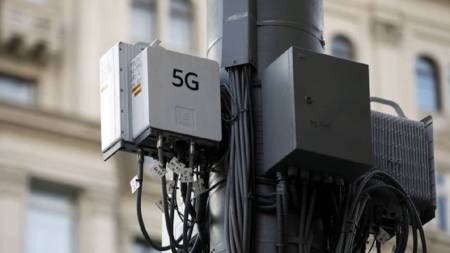
There is no scientific evidence linking 5G to COVID-19 Author: The Verge Published: 08/04/2020 | 08:49 pm
Conspiracy theories are generally harmless phenomena that rely on circumstantial issues to generate questions that often go unanswered. Thus, they sow doubt about a topic and generate debates that, in this age of the Internet everywhere, become endless.
However, when one of these theories causes consequences in the social fabric, it can already be described as dangerous. This is what is happening right now in the United Kingdom, where several telephone poles with 5G transmitters have been burned in some cities. These facts that are linked to an evil rumor that is spreading like wildfire in the networks, taking advantage of the social hysteria generated by SARS-CoV-2.
According to the “conspirators”, the deployment of the fifth generation of mobile data transmission technology, or 5G, is linked to the COVID-19 pandemic, which has led to the burning of transmitters, a sign of the panic caused by the epidemic.
Theories
Rumors and conspiracy theories about a link between the launch of 5G and the spread of the coronavirus have spread mainly through social networks. There are groups on Facebook and Nextdoor, where thousands of members repeat false and misleading claims that 5G is supposedly harmful.
The theory claims that the new coronavirus originated in Wuhan because the Chinese city had recently launched 5G. Supposedly it has now spread to other cities that also use this technology.
It is the hottest hoax on social networks these days, after another one was dismantled, claiming that the SARS-CoV-2 virus was created for obscure geopolitical purposes. In this last case, the theory falls apart with a study entitled The Proximal Origin of the Coronavirus, published in the journal Nature Medicine.
Research compares the ribonucleic acid sequence of this microorganism with that of other coronaviruses such as SARS and MERS, and bases its conclusions on the characteristics of a protein called spike. This spike is found in the external envelope of the virus and has a sort of hook through which it attaches to human cells. This “ability” of the pathogen is essential in its ability to infect people, one of its most damaging characteristics.
And it is so perfect, according to the study, that “it is most likely the product of natural selection (…) strong evidence that SARS-CoV-2 is not the product of self-serving manipulation”. In the same sense, and even more categorically, researcher Kristian Andersen, from Scripps Research Institute, in Florida, United States, stated in La Repubblica, an Italian publication: “Confronting the generic data available today on the various types of coronavirus, we can resolutely state that SARS-CoV-2 is the result of natural processes”.
In the case of the theory linking 5G to the new coronavirus, there is no more than investigating the properties of this new technology, so-called because it is the fifth generation of mobile phone networks, designed to multiply the connection speed of our portable devices tenfold.
Those who defend the theory claim that 5G weakens the immune system, emitting harmful radiation and therefore facilitating the entry of the coronavirus into the body. They also add that viruses use radio waves to communicate.
The first “argument” collapses when we look at the radio spectrum. At the low-frequency end of the spectrum, we find the radio waves used by 5G. Therefore, this technology does not produce ionizing radiation and does not damage human DNA, which other frequencies such as X-rays or ultraviolet light, responsible for causing diseases such as cancer, do.
According to the AS newspaper, “radiation emitted by radio waves is at a similar level to that produced by televisions and natural light. It is true that this new generation is a bit above its predecessors in this type of emissions. It is also true that, according to Ofcom – the UK’s telecommunications regulator – the maximum it can generate is 66 times below the safety limit.
The Department of Health in England adds that 5G “should have no impact on public health” and the World Health Organization has included 5G under heading 2B of carcinogens. That is, among those not proven to be capable of producing cancer. According to this classification, it would be as potentially carcinogenic as coffee.
The second argument is pure fantasy, while there are no studies that point in that direction. There are, however, that admit that this communication through radio waves could occur between bacteria (in no case between different viruses). For example, there is a study by a group led by Allan Widom at Northeastern University in Boston, USA, whose conclusions have been discussed by the prestigious Massachusetts Institute of Technology.
The facts
Despite all the evidence that disproves this crude conspiracy theory linking 5G to SARS-CoV-2, UK territories such as Birmingham, Liverpool and Melling have been the scene of cell tower fires in recent days.
The UK’s Department for Digital, Culture, Media and Sport tweeted that “there is absolutely no credible evidence” of a link to the conspiracy theory, while commercial agency Mobile UK said such rumours and conspiracy theories were “worrying”.
UK telecoms operators now believe the attacks undermine the nation’s security. According to a tweet from Vodafone’s chief executive officer there, “this is now a matter of national security. The police and anti-terrorist authorities are investigating.
There have even been reports of harassment of telecommunications workers as they deployed fibre optic cables, as witnessed by a video also broadcast on Twitter by a BBC reporter.
The truth is that Iran, for example, is among the nations most affected by the new coronavirus, and there is not a single 5G tower there. There’s lots of evidence that dismantle this misleading theory, but the emotional fragility begins to make a dent. 5G is not a factor in its spread. Globalization is. And once the virus enters a territory, social isolation is the most effective measure to prevent its spread.
For our readers, who today are contributing to the great global battle against SARS-CoV-2 by staying at home, here is some advice: follow only official information from authorities about the pandemic and do not contribute to the networks that expand the reach of false news. We already see how harmful and dangerous it can be to feed on unverified facts, especially when the situation we are living in requires poise and a lot of common sense.
Diversifying IT Services and Making Them Exportable

Diversifying IT Services and Making Them Exportable
The Minister of Communications, during the balance sheet of the Informatics and Communications Business Group, highlighted the need to encourage human capital and undertake projects that increase income
by Yaditza del Sol González | internet@granma.cu
February 19, 2020
Translated and edited by Walter Lippmann for CubaNews.
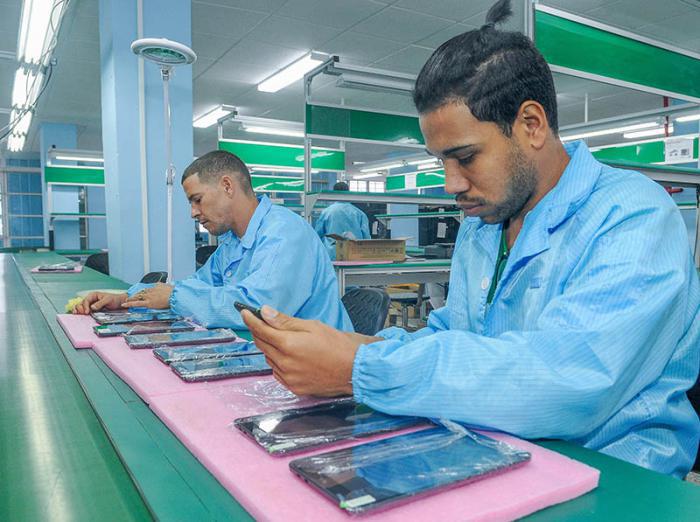
Cuba is strongly committed to the computerization of society, despite the intensification of the U.S. economic blockade. Currently, 63% of the country’s population is connected to the Internet through various channels. Photo: Granma Archive
Establishing alliances that promote productive linkages between different Cuban enterprises, implementing services to citizens, with priority given to government management and electronic commerce, as well as accelerating the safe development of technological infrastructure and encouraging research, development and innovation programs, are actions that respond to a single strategy: the implementation of the policy of computerization of society.
This was the opinion of the head of the Ministry of Communications, Jorge Luis Perdomo Di-Lella, who highlighted the need to encourage human capital and undertake projects that increase income. In this sense, he referred to the possibilities of exporting Cuban software, with a guaranteed quality, and in the deployment of proposals that are connected with foreign investment.
“The challenge is to diversify services, make them attractive, study which ones we can offer in the international market, all from the resources we have. In view of the economic situation of the country and the tightening of the U.S. economic blockade against Cuba, we are called upon to manage financing and seek foreign currency. [We must do this] either by using measures to make state-owned companies more flexible or by means of productive chains. This not only contributes to the monetary stability of the country but also to the very development of business.
During the assessment of the Informatics and Communications Business Group, the Minister called for a close follow-up of the e-government program. [This is] because once the present stage is over, “we are entering a more complex phase, where the provincial and local governments must guarantee the updating of the website’s contents and motivate the citizen to be at the center of the transformation of the management they carry out”.
With respect to cyber security, he said that there is a demand for digital certificates in the country and yet there is no consolidated marketable supply from computer and communications companies. The use of these certificates by the institutions allows us to increase the security codes and protect the exchange of information, an essential tool in a scenario where Cuban users are increasingly connected.
As Cuban President Miguel Díaz-Canel has mentioned on several occasions – the Minister emphasized – we must be able to make better use of the financial resources at our disposal to enhance the process of computerizing society.
IN FIGURES
By the end of 2019:
7.1 million Cubans were connected to the Internet, representing 63% of the country’s population
More than 143,000 homes were connected to the Nauta Hogar network
More than six million active lines are supported by the mobile phone network on the island, and 70% of these connections were made through smartphones
Source: Global Digital Report 2020 and Etecsa
Huawei Wants to Replace Google Search

Huawei Wants to Replace Google Search With Its Own Search Engine
March 4, 2020
Translated and edited by Walter Lippmann for CubaNews.
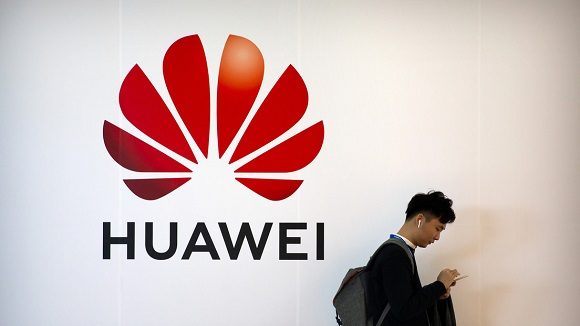
Huawei’s billboard at PT Expo, Beijing, China, October 31, 2019. Photo: Mark Schiefelbein/AP.
Replace Google Search. That is the purpose of Huawei, which is developing an Internet search engine for its mobile devices, according to the media XDA, which participated in the testing of the beta version of that application which the Chinese technology began to develop last week.
Huawei Search works as a basic search engine that helps to find websites, news, videos or images on the Internet, while offering shortcuts to consult information about the weather or currency exchange.
However, this solution is not connected to other programs, while Alphabet’s company search engine does have links to utilities such as “podcasts” or Google Assistant.
This service is operated by Aspiegel Limited -Huawei’s subsidiary in Ireland- and could work on the Chinese technology’s own search engine, without the need to incorporate external search programs.
Although at first the company invited anyone to participate in this initiative, as of February 29th it stopped the beta testing of Huawei Search because of its “concerns” related to the “misuse” of the app in social media.
The Chinese technology company has promoted this project because it cannot use certain US technology services since 2019.
It also happens that some Huawei mobiles cannot use certain Google services since last year, when the US government blacklisted the Chinese firm, preventing it from acquiring components from US companies without Washington’s approval.
A Smartphone App called Duolingo

A Smartphone App called Duolingo
Do you like to learn another language? One of the most enjoyable ways is with Duolingo, an application available for iOS and Android, as well as in web format, which allows users to get into the basics of multiple languages
By Yurisander Guevara
February 26, 2020
Translated and edited by Walter Lippmann for CubaNews.
 Do you like to learn another language? One of the most enjoyable ways is with Duolingo, an application available for iOS and Android, as well as in web format, which allows users to get into the basics of multiple languages.
Do you like to learn another language? One of the most enjoyable ways is with Duolingo, an application available for iOS and Android, as well as in web format, which allows users to get into the basics of multiple languages.
Its creators designed the application in a very visual way. “Our short, free lessons are designed to feel more like a game than a study book. Learning is easier when you’re having fun,” they say.
The lessons focus on a real-world goal, such as ordering in a restaurant. Students develop the vocabulary and grammar necessary to achieve that goal through varied reading, writing, listening and speaking practice.
According to its creators, the application has over 300 million users.
Cell Phone Addiction

Cell Phone Addition Causes Loss of Gray Matter in the Brain
Scientists warn that the growing use of smart phones makes it necessary to raise the issue of the harmful effect on mental health
Published February 22, 2020 | 12:46:47 pm.
By Juventud Rebelde digital@juventudrebelde.cu
Translated and edited by Walter Lippmann for CubaNews.
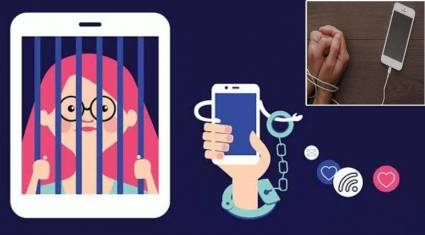
Addiction to social networks, cell phones or video games is often underestimated Author: Twitter Posted: 22/02/2020 | 12:43 pm
BRUSSELS, February 22. – A group of European physiologists have detected negative changes in the volume and activity of the brains of people diagnosed with cell phone addiction.
The researchers scanned the skulls of 22 addicted patients and observed a decrease in gray matter in two regions of their cerebral cortex and less activity in a third region compared to 26 other healthy people.
The observation of this transformation, similar to that which occurs in drug addicts, offers the first material evidence of the relationship between the overuse of so-called smartphones and the physical deterioration of the human brain.
The conclusions of the study will be included in an article that will appear in the journal Addictive Behaviors next June, reports Russia Today. In addition, it was revealed that blue light from digital device screens can accelerate blindness.
The authors stress that the growing use of smart phones in recent years makes it necessary to raise the issue of the harmful effect of their use on physical and mental health.
They are particularly concerned about the health of children, who are spending more and more time with digital devices from younger and younger ages.
In their study, the scientists comparatively analyzed structural and functional magnetic resonance images and used a morphometry based on a voxel, a three-dimensional matrix that served to model brain processes.
This revealed that, compared to the control group, the addicted individuals had a lower volume of grey substance in the left anterior insula of the brain and in two sections of the temporal cortex.
They also recorded lower intrinsic brain activity in the part of the brain that transmits the neural signals between the two hemispheres, the cortex of the right anterior cingulate.
Farewell Letter to a Lost Cell Phone

Farewell Letter to a Lost Cell Phone
 By Liudmila Peña Herrera digital@juventudrebelde.cu
By Liudmila Peña Herrera digital@juventudrebelde.cu
January 30, 2020
Translated and edited by Walter Lippmann for CubaNews.

Cell Phone Author: LAZ Published: 03/02/2020 | 01:23 pm
My good Samsung Note 3:
Although it sounds corny, I must say that I miss you; that everything seems boring and unimportant without you; that I will try to learn to love the Xiaomi that I will buy for myself when I get my 13th month and my uncle Alcides gets paid for the pig he sold us for the 31st there in La Caoba; that now I am going back to study for my Master’s thesis because of the books or the handwritten notes, but nothing, absolutely nothing, is the same without you: neither the HD videos I recorded with you, nor the photos, nor the 3G, nor the audio, nor the music – alas, the last records of Buena Fe and Carlos Varela went with you!—. I can’t even listen to music now, my never well-pondered Note 3. I’m crestfallen and forgetful, because not even the calendar of this little task I was lent is any use at all (nor any reminder!)
Who knows in whose hands you are! Maybe at the bottom of a drawer, hidden by the guy who put his hand in my purse in the middle of the P-12 full of people squeezed and protesting. And I was taken away by the demands of my girlfriend to look her in the face and attend to her when she began to tell me, in the middle of the bus, and to all of the other guys, another of her banal anguishes of a contemporary woman: that if the boss only listens to himself and laughs out loud at his own jokes, that if the receptionist is a gossip and applies the x-ray or ultraviolet rays to every nylon jaba [Cuban shopping bag] she enters the office with, that if she doesn’t have a balance left in the Nauta account and all that blablabla that, you and I know, was never of interest to me when you were with me.
Who would have sent me to roll up your headset around your waist and put them in your purse pocket? What feminist article would have convinced me that women are right or should be made to believe they are! Nothing, I’m keeping my talking girlfriend, but I’m getting ready for a new cell phone.
Now she says she’s got me back, that I’m finally the same person she knew at the university when neither of us knew what a mobile phone was. This was because we didn’t even have a flash memory, just five or six three-and-a-half inch discs to make the many copies of the research methodology papers we kept like a gold chain inside a pullover in a Santiago van.
It’s true that I’ve been sexually active for a week since that bastard put his hand in my purse. It’s true that I talk more and am noticed to be a little less entertaining and anxious. I have to admit that I don’t wake up anymore and the first thing I do, almost without opening my eyes, is to look for Facebook, Instagram and Twitter notifications. I don’t even have bad digestion anymore!
Oh, but how I miss you in the bathroom, especially when I sit on the toilet and do my thing calmly. Now you can call and call, and if I’m in the bathroom, I don’t answer.
And how envious I am of people who arrive at the office meeting, at the policlinic emergency room, at the bus stop – and even on the bus itself – and take out their cell phone, activate their mobile data and go surfing! And those who have no data start looking at the photos in the gallery, reading their digital books, playing games?
How hard it is for me to wait without you. I didn’t know, before my partner Robert brought you “from the outside”, after I broke that iPhone that was also in use, that you could love a Note 3 so much. It’s true that when I met you you already had miles traveled with Robert on the fast lane roads in the First World Internet, but how efficiently you always worked with me, after they changed your little piece that cost me 15 cuc in that “cell clinic”.
Now my girlfriend, who criticized me so much for my obsessive-compulsive stance towards you that she even took it out on her students at the university. She took all their cell phones and put them on the desk until after class so that they wouldn’t get distracted. Now she is now the one who walks around the house all day with her headphones stuck in her ear every Saturday while she washes or lays out her clothes.
It makes me angry every time I go to stay at her house and when we talk or watch a series, between one sentence and another, I catch her activating the data and reacting to some publication of her friends with a face of “I love you” or “I adore you”. Why lie to you: I even hate it when she says “Titi, come, open me up, let’s make a selfie” (this token doesn’t have a front camera, boy). Sometimes I see her attached to her Galaxy S10 that her uncle brought her and I think she looks like a woman attached to a cell phone. I tickle her ear and she doesn’t even notice, with that modern appendage in her hands.
Then I see it all so clearly: I hate both my girlfriend and her cell phone. She doesn’t even listen to me anymore. I look like a monkey talking to itself. Oh, my Note 3, I can’t wait for my girlfriend’s phone to be stolen!
Desperately,
The owner of the “tarequito”. [old clunker, wl]
Five Free Alternatives to Microsoft Office

Five Free Alternatives to Microsoft Office
Although the office suite par excellence that everyone knows is the one developed by the creators of Windows, there are others with similar characteristics that are free to use
By Yurisander Guevara
January 29, 2020
Translated and edited by Walter Lippmann for CubaNews.


We started with a delivery that was born in China and has been consolidated as one of the best in its field. WPS Office is, in a way, “a clone” of Microsoft Office. Not only is it similar in design, but it also has its own functionalities. This does not mean something pejorative, on the contrary, it reinforces the idea of how well Microsoft has done in this section to inspire others to follow in its footsteps.
WPS Office is multi-system. It has versions for Windows, MacOS, GNU/Linux, Android and iOS. Originally known as Kingsoft Office, this program supports all Microsoft formats. And while it has now gained more notoriety, what many do not know is that this product has been available since 1989.
Among its main applications are Writer, the word processor; Spreadsheets for spreadsheets, and Presentations for slides. It does not have software for database management, mathematical formula manipulation or vector graphics. However, in an office suite the most used are the options already mentioned.
WPS Office has a premium or paid version, which allows you to convert documents to PDF format, as well as manage documents in multiple platforms from the user account, among other benefits. This software can be downloaded at www.wps.com.
LibreOffice
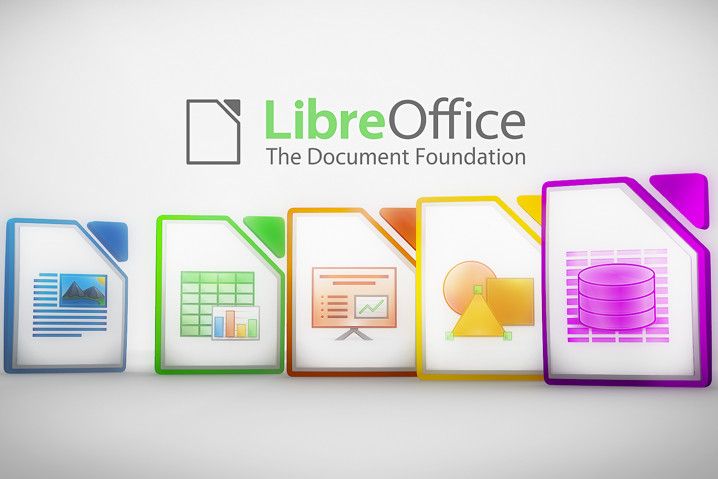
Born in September 2010, and since then, with the support of the community of users of free technologies, LibreOffice has grown into a solid and full-featured product, managed by the non-profit organization The Document Foundation.
Its creation is due to a bifurcation of another office software: OpenOffice. Among its applications are Writer (word processing); Calc (spreadsheets); Impress (slides); Math (creating and editing mathematical formulas); Draw (vector graphics editor), and Base (database management similar to Access).
LibreOffice is a fairly complete solution that can cover the needs of more than 90 percent of the users. As standard it uses its own document format, .odf, but it also supports the latest and even the oldest Microsoft formats, such as .docx or .doc.
This software is available for Linux, Windows and Mac. On GNU/Linux systems it almost always comes standard with the installation. To download it you can visit en.libreoffice.org.
OpenOffice
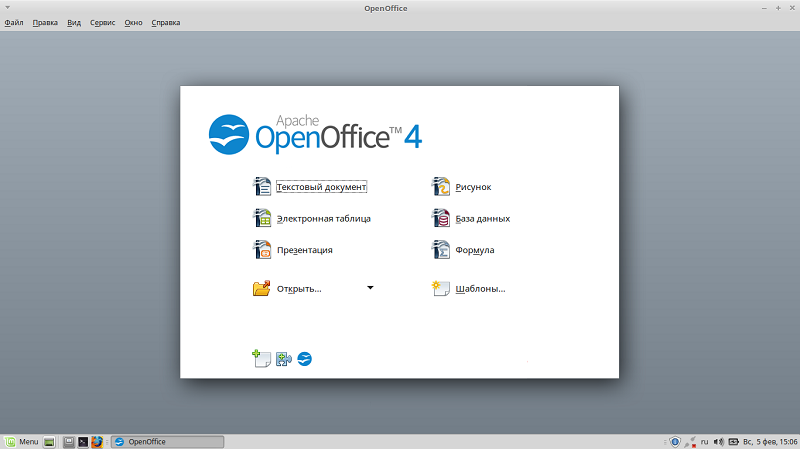
Although its current name is Apache OpenOffice, this office suite is known to everyone as OpenOffice. It is an open-source project born in 2000 as a result of the release of the StarOffice source code by Sun Microsystems, according to several specialized sources.
The company Oracle acquired Sun Microsystems, so OpenOffice was under its shadow until it was donated to the Apache Foundation, which since then manages the software as a project.
This software has fewer features than LibreOffice, although it is still a free alternative that provides the user with the same applications as the latter, but it does not have compatibility to export, at least as standard, to the most recent formats of the Redmond giant for office documents, according to the website My Computer Hoy.
The latest stable version of OpenOffice dates from last year and can be downloaded at www.openoffice.org.
FreeOffice
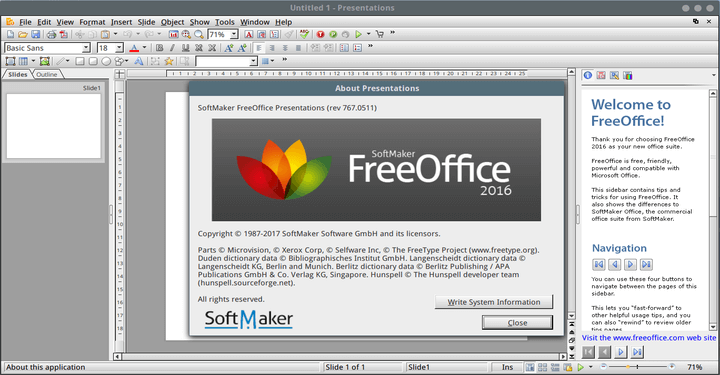
Although not updated since 2018, this office software package is quite interesting.
Developed by the German company SoftMaker, founded in 1989, FreeOffice is a free office suite based on SoftMaker Office technology (which is paid for and includes more features).
FreeOffice has as applications a word processor (TextMaker), spreadsheets (PlanMaker) and presentations (Presentations). Its software is proprietary, but its free version is available for Windows, Linux, MacOS and Android.
At www.freeoffice.com it is possible to download this suite which also offers, separately, a free PDF document editor.
Google docs

This is a software as a service that does not require installation in the case of computers, as it can be used only with a web browser, as it is in the cloud.
Google Docs is a simple and fast way -as long as the Internet is available-, to work with digital documents. It has a text editor, spreadsheets, a presentation editor and a form editor.
If used as a mobile application, it allows you to keep files offline, and in its desktop version it offers the possibility of downloading the document to your computer. However, perhaps one of its greatest features is the ability to archive text on Google Drive, which makes it ubiquitous and accessible if there is a network connection.
A downside to this type of application is that users could sacrifice their privacy if their Google Account is compromised. The Google office suite is available at docs.google.com.
As we have seen there are several alternatives to Microsoft Office, all free and available in a wide range of operating systems or even as a service. Do you want to try one?
Facebook and the Surveillance of its Users

Facebook and the Surveillance of its Users
The social network admits to having paid external contractors to listen to and transcribe conversations.
By Juventud Rebelde
Wednesday 14 August 2019 | 09:51:48 pm.
A CubaNews translation. Edited by Walter Lippmann.
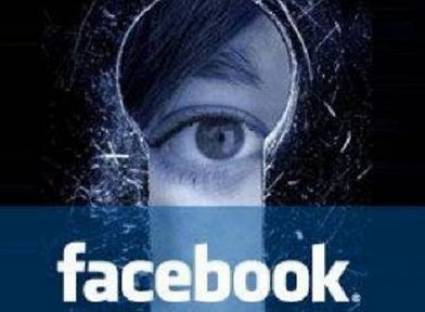
Facebook Author: Juventud Rebelde Posted: 08/14/2019 | 09:11 pm
Facebook, the company founded by Mark Zuckerberg, explains that the purpose of the practice of listening to and transcribing conversations from its users was to test the functioning of its artificial intelligence system.
“Hundreds” of external Facebook contractors have listened to and decrypted voice messages that users of the technology giant send in their chats on Facebook Messenger, Bloomberg revealed on Tuesday, quoting sources familiar with the project.
According to its statements, the company paid them to transcribe audio conversations, but did not explain where the recordings were from – several of them with vulgar content – were obtained and why they had to be deciphered.
Facebook has confirmed the information in this regard, specifying that the project ended only a few days ago. “Like Apple and Google, we stopped the human review of audios more than a week ago,” said the company. They also noted that affected users gave their consent to the practice by checking the option of transcription of their recordings in the “Settings” of Facebook Messenger.
Facebook clarified that the aim of the project was to test the functioning of its artificial intelligence system, said RT, which describes it as “a new scandal.”
This is not the first report on the violation of the privacy of users of technological giants. In early August, the corporations Google, Apple and Amazon modified their privacy policies, responding to a wave of criticism caused by reports that they listen to and transcribe audio recordings recorded by their virtual assistants – Google Assistant, Siri and Alexa, respectively – without the consent of the users.
Thus, on August 1, German regulators announced that Google had informed them that it had suspended the transcription of conversations for at least three months. In turn, Amazon allowed Alexa users to delete voice recordings from a database accessible to company employees and contractors on Aug. 2.
Transfermóvil Offers New Services

Transfermóvil offers new services
As of this Wednesday, an updated version of Transfermóvil is available, the application that allows you to manage several public services through online payment.
Thursday 08 August 2019 | 12:06:11 am
A CubaNews translation.
Edited by Walter Lippmann.
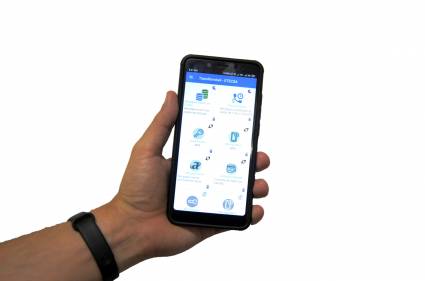 As of this Wednesday, an updated version of Transfermóvil is available, the application that allows managing various public services through online payment, developed jointly with Etecsa, Banco Popular de Ahorro, Banco de Crédito y Comercio and Banco Metropolitano.
As of this Wednesday, an updated version of Transfermóvil is available, the application that allows managing various public services through online payment, developed jointly with Etecsa, Banco Popular de Ahorro, Banco de Crédito y Comercio and Banco Metropolitano.
On this occasion, the Nauta Top-Up and Mobile Micro Top-Up services are added, features that are free of charge and do not consume mobile data, according to Etecsa’s Facebook page.
Among the services offered are banking, public and communications. You can download the APK from Etecsa’s websites (www.etecsa.cu); Apklis (www.apklis.cu), through the Central Bank’s websites and through Cubacel’s Facebook page.
Mayra Arevich, executive president of Etecsa, in her Twitter account commented: “Today we are launching a new version of Transfermóvil, a Cuban application that facilitates payment management for its clients. We will continue this August adding new services”.
Transfermóvil is a computer platform for cellular network subscribers. It allows them to make online payments for public services and to manage telecommunications services from any mobile terminal, using their Telebanca card associated with one of their bank cards, according to the bank to which they belong.
Correa Protests Facebook Cancellation

Correa Denounces Facebook Closing of His Page
Rafael Correa, former Ecuadorian president, alerted in his official Twitter account about the closing of his Facebook page.
Author: Digital Editor | internet@granma.cu
June 8, 2019, 11:06:31
A CubaNews translation.
Edited by Walter Lippmann.
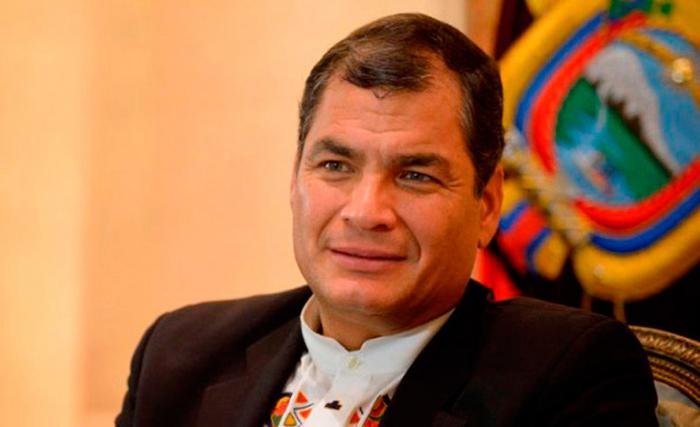
The former Ecuadorian president commented that the maneuver is a case of “open censorship”. Correa denounced that the Facebook company had closed his personal page in that social network, in which he was followed by 1.5 million people, due to a “political” decision.
In a message broadcast Friday on Twitter, the former Ecuadorian president (2007-2017) said that, according to Telesur, “we are witnessing a new attack on freedom of expression. Without any reason, the social network @NotiFacebook decided to suspend my account. Stronger than ever. We will continue fighting to recover our homeland.
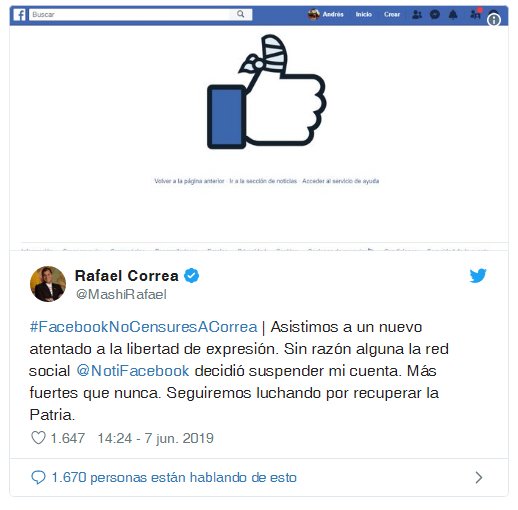
Correa said Mark Zuckerberg’s company never warned him of “non-compliance with community rules,” and said the suspension was politically motivated.
The page of the former president, who is in Belgium after politically breaking with his former ally and current head of state of Ecuador, Lenín Moreno, was deactivated on April 11, the same day that Moreno’s government decided to withdraw political asylum from the founder of WikiLeaks Julian Assange.
Correa blamed this situation on the Facebook person in charge of the Andean Region, Diego Bassante, who would have political differences with the ex-president. “He was a judge and a party in this ‘technical’ decision to suspend the page,” he said.
The former president opened last Thursday a new page on the social network, which was joined by more than 40,000 followers in just a few hours. However, the account was canceled on Friday.
“I can’t believe it,” Correa said, and asked the lawyers to help him find out what can be done in these “open censorship” cases.
Subscribe to Blog via Email
| M | T | W | T | F | S | S |
|---|---|---|---|---|---|---|
| 1 | 2 | 3 | 4 | 5 | 6 | |
| 7 | 8 | 9 | 10 | 11 | 12 | 13 |
| 14 | 15 | 16 | 17 | 18 | 19 | 20 |
| 21 | 22 | 23 | 24 | 25 | 26 | 27 |
| 28 | 29 | 30 | ||||

You must be logged in to post a comment.